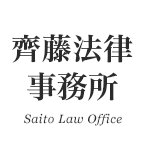Best Car Accident Lawyers in Tokyo
Share your needs with us, get contacted by law firms.
Free. Takes 2 min.
List of the best lawyers in Tokyo, Japan
About Car Accident Law in Tokyo, Japan
Car accident law in Tokyo, Japan, predominantly falls under the purview of the Road Traffic Act and the Civil Code. These legislations outline the responsibilities of drivers, the procedures for reporting accidents, and the mechanisms through which victims can seek compensation. In Tokyo, like the rest of Japan, the principle of comparative negligence is applied, meaning that both parties in an accident may bear some degree of fault, affecting the compensation each party may receive. The law mandates that all vehicles be insured, and the insurance system plays a crucial role in the settlement of most car accident claims.
Why You May Need a Lawyer
There are several situations where securing legal assistance can be crucial if you're involved in a car accident in Tokyo. If you face difficulty negotiating with insurance companies, if there's a dispute over who is at fault, or if you've suffered significant injuries leading to loss of income or large medical bills, a lawyer can help navigate the complexities of the law to secure fair compensation. Lawyers are also invaluable in situations involving long-term disability, navigating claims for damages outside of insurance coverage, or representing you in court should the case escalate to litigation.
Local Laws Overview
The key aspects of local laws relevant to car accidents in Tokyo include mandatory vehicle insurance, the requirement to report accidents resulting in injury or significant damage to the police, and the application of comparative negligence in fault determination. The Road Traffic Act stipulates the rules of the road, while the Civil Code provides the basis for compensation for damages or injuries. Specific attention is also given to pedestrian rights; for instance, in most cases, drivers are heavily penalized in accidents involving pedestrians, reflecting the high value placed on pedestrian safety in Japanese law.
Frequently Asked Questions
1. What should I do immediately after a car accident in Tokyo?
Ensure the safety of all parties, call emergency services if needed, report the accident to the police, and exchange information with the other driver. It’s also recommended to take photos of the scene and contact your insurance company as soon as possible.
2. How is fault determined in a car accident in Tokyo?
Fault is determined by the police based on the circumstances of the accident, witness reports, and evidence from the scene. The principle of comparative negligence may apply, splitting the fault between parties.
3. Do I need to contact my insurance company after an accident?
Yes, contacting your insurance company promptly after an accident is crucial. They can guide you through the claims process and what steps to take next.
4. What types of compensation can I receive?
Compensation can cover medical expenses, repair or replacement of your vehicle, loss of income, and in some cases, compensation for emotional distress.
5. How long do I have to file a claim after an accident?
You typically have up to three years from the date of the accident to file a claim for personal injury and two years for property damage under Japanese law.
6. Can I settle a car accident claim without going to court?
Yes, the majority of car accident claims in Tokyo are settled through negotiation between the insurance companies and the parties involved without going to court.
7. What if the other driver is uninsured?
If the other driver is uninsured, you may need to seek compensation through legal action or from your own insurance if you have coverage for such situations.
8. How can a lawyer help me after a car accident?
A lawyer can help negotiate with insurance companies, represent you in disputes over fault, ensure you receive fair compensation, and represent you in court if necessary.
9. What happens if a foreign driver is involved in an accident?
If a foreign driver is involved, the process generally remains the same, but it may involve additional complexities, such as dealing with international insurance. Legal assistance in such cases can be invaluable.
10. Are there any specific laws for bicycle accidents?
Yes, bicycles are considered vehicles under Japanese law, so similar principles apply in accidents involving bicycles, with specific considerations based on the circumstances of the accident.
Additional Resources
For further assistance, you can contact the Japan Automobile Federation (JAF) for roadside assistance or legal aid related to car accidents. The Consumer Affairs Agency provides guidance on dealing with insurance claims, and the Tokyo Metropolitan Police Department can assist with accident reports and procedures. The Japan Legal Support Center (Houterasu) offers legal assistance and support for those involved in accidents and in need of legal advice.
Next Steps
If you need legal assistance following a car accident in Tokyo, consider consulting a lawyer who specializes in car accident law. Gather all relevant documents such as the accident report, medical records, and any communication with your insurance company. Preparing a detailed account of the accident, including photos and eyewitness accounts, can also be beneficial. Remember, time is of the essence, so seeking legal advice promptly can help ensure the best possible outcome for your case.
Lawzana helps you find the best lawyers and law firms in Tokyo through a curated and pre-screened list of qualified legal professionals. Our platform offers rankings and detailed profiles of attorneys and law firms, allowing you to compare based on practice areas, including Car Accident, experience, and client feedback.
Each profile includes a description of the firm's areas of practice, client reviews, team members and partners, year of establishment, spoken languages, office locations, contact information, social media presence, and any published articles or resources. Most firms on our platform speak English and are experienced in both local and international legal matters.
Get a quote from top-rated law firms in Tokyo, Japan — quickly, securely, and without unnecessary hassle.
Disclaimer:
The information provided on this page is for general informational purposes only and does not constitute legal advice. While we strive to ensure the accuracy and relevance of the content, legal information may change over time, and interpretations of the law can vary. You should always consult with a qualified legal professional for advice specific to your situation.
We disclaim all liability for actions taken or not taken based on the content of this page. If you believe any information is incorrect or outdated, please contact us, and we will review and update it where appropriate.












